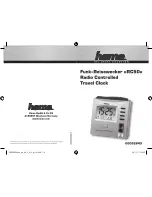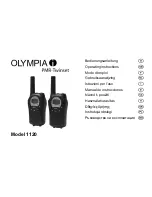
37
ENGLISH
damaged, liquid has been spilled, objects
have fallen into the product, the enclo-
sure is damaged, the product has been
exposed to rain or moisture, does not op-
erate normally, or has been dropped.
• Before connecting the product to a sock-
et outlet, make sure the voltage indicated
on the product corresponds to your local
mains.
• Only use the provided adaptor.
• Only use the adapter that matches the
technical data.
• The adaptor power plug is used as the
disconnect device; the disconnect device
shall remain readily operable. To com-
pletely disconnect the power input, dis-
connect the adaptor power plug.
• The product may not function properly or
not react to the operation of any control
due to electrostatic discharge. Switch off
and disconnect the appliance; reconnect
after a few seconds.
• Protect the supply cord from being
walked on or pinched particularly at the
plug, convenience receptacles and the
point where it exits from the product.
• Disconnect the adaptor power plug in
case of faults during use, during lighten-
ing storms, before cleaning and when not
using the product for a longer period of
time.
•
Danger!
Before cleaning, switch the
product off and disconnect the adaptor
power plug from the socket.
• When the product has reached the end
of its service life, make it defective by dis-
connecting the adaptor power plug from
the socket and cutting the cord in two.
•
Caution!
There is danger of explosion
from improper replacement of the batter-
ies. Replace batteries only with the same
or equivalent type of battery.
• Always change the entire battery pack.
Do not mix old and new batteries, or bat-
teries with different charge state.
• Make sure the batteries are correctly in-
serted. Observe the polarity (+) plus / (-)
negative on the battery and the housing.
Improperly inserted batteries can lead to
leakage or, in extreme cases, a fire or an
explosion.
• Never expose batteries to excessive
heat (e.g. bright sun, fire), and never
throw them into fire. The batteries could
explode.
• Remove used batteries. Remove the bat-
teries if you know that the product will
not be used for a longer period of time.
Otherwise, the batteries could leak and
cause damage.
• Keep batteries out of reach of small chil-
dren. If batteries have been swallowed,
seek immediate medical attention.
• Non-rechargeable batteries must not be
recharged.
• If the batteries leak, remove them with a
cloth and dispose of them accordingly.
Prevent battery acid from coming into
contact with skin and eyes. If you do
get battery acid in your eyes, flush them
thoroughly with lots of water and consult
a physician immediately. If battery acid
comes into contact with your skin, wash
the affected area with lots of water and
soap.
PDR200_A5_131219_1.indb 37
19/12/13 10:39 AM
















































